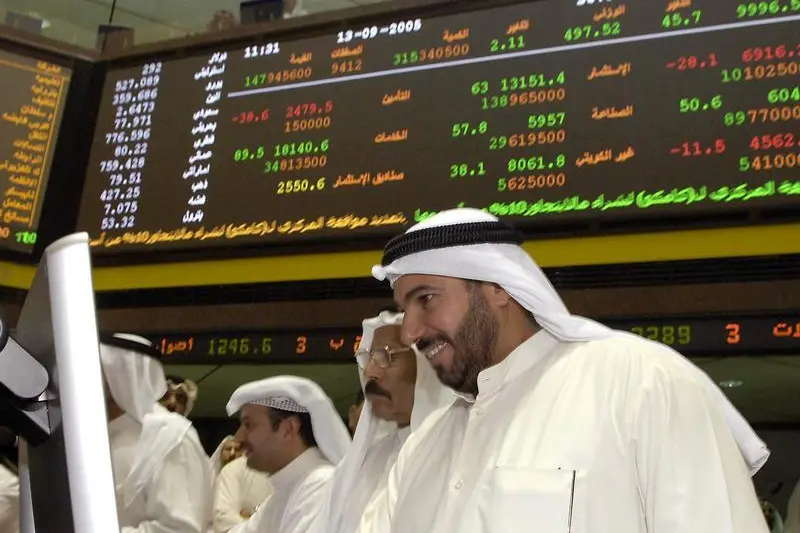PHOTO
DUBAI, May 28 (Reuters) - Gulf stock markets may have a soft tone in thin trade on Sunday after global oil producers agreed after the close on Thursday to extend cuts in output by nine months to March 2018.
The deal removes uncertainty and may put a floor under oil prices at around $50 a barrel for Brent , which could allow Gulf governments including Riyadh to spend a little more on economic growth this year.
"While the cuts will continue to trim headline GDP growth in the Gulf this year, the boost to oil export receipts should allow austerity to be eased further, supporting stronger growth in non-oil sectors," London-based Capital Economics said in a report.
However, many in the markets had been hoping for stronger action to push up oil prices, such as a deal to deepen the production cuts or extend them further until mid-2018.
So Brent dropped by more than 4 percent to as low as $51.03 a barrel after the deal was announced, although it has since come back to $52.15.
Low trading volumes on most Gulf bourses in recent weeks may shrink further due to the start of the holy month of Ramadan and because of a general lack of positive corporate news.
Kuwait's Agility may attract interest after it said it had agreed to pay $95 million in cash to settle a civil lawsuit accusing it of defrauding the United States military on food supply contracts. This follows the earlier settlement of the parallel criminal portion of the case involving more than $8.6 billion of contracts.
The deal resolves all legal issues related to the contracts for Agility staff, directors, officers and affiliates, it said, adding that the settlement would allow Agility to once again pursue new U.S. government contracts.
Rising diplomatic tensions between Qatar and other Gulf Arab states have so far showed no clear sign of hurting the Qatari market, but regional investros could become more cautious about investing if the dispute drags on.
Saudi Arabia and the United Arab Emirates signalled frustration with Qatar last week after its state media published purported remarks by Qatari Emir Tamim bin Hamad al-Thani criticising Gulf rhetoric against Iran and suggesting tensions between the emir and U.S. President Donald Trump.
ID:nL8N1IS4LM
Qatar said the remarks, published late on Tuesday, were fake and that the news agency that ran them had been hacked in an apparent attempt to misrepresent Sheikh Tamim's views. But Gulf Arab countries including Saudi Arabia allowed their state-backed media to run them, infuriating Doha and triggering a war of words in regional media.
(Reporting by Andrew Torchia) ((andrew.torchia@thomsonreuters.com)(+9715 6681 7277)(Reuters Messaging: andrew.torchia.thomsonreuters.com@reuters.net))
The deal removes uncertainty and may put a floor under oil prices at around $50 a barrel for Brent , which could allow Gulf governments including Riyadh to spend a little more on economic growth this year.
"While the cuts will continue to trim headline GDP growth in the Gulf this year, the boost to oil export receipts should allow austerity to be eased further, supporting stronger growth in non-oil sectors," London-based Capital Economics said in a report.
However, many in the markets had been hoping for stronger action to push up oil prices, such as a deal to deepen the production cuts or extend them further until mid-2018.
So Brent dropped by more than 4 percent to as low as $51.03 a barrel after the deal was announced, although it has since come back to $52.15.
Low trading volumes on most Gulf bourses in recent weeks may shrink further due to the start of the holy month of Ramadan and because of a general lack of positive corporate news.
Kuwait's Agility may attract interest after it said it had agreed to pay $95 million in cash to settle a civil lawsuit accusing it of defrauding the United States military on food supply contracts. This follows the earlier settlement of the parallel criminal portion of the case involving more than $8.6 billion of contracts.
The deal resolves all legal issues related to the contracts for Agility staff, directors, officers and affiliates, it said, adding that the settlement would allow Agility to once again pursue new U.S. government contracts.
Rising diplomatic tensions between Qatar and other Gulf Arab states have so far showed no clear sign of hurting the Qatari market, but regional investros could become more cautious about investing if the dispute drags on.
Saudi Arabia and the United Arab Emirates signalled frustration with Qatar last week after its state media published purported remarks by Qatari Emir Tamim bin Hamad al-Thani criticising Gulf rhetoric against Iran and suggesting tensions between the emir and U.S. President Donald Trump.
Qatar said the remarks, published late on Tuesday, were fake and that the news agency that ran them had been hacked in an apparent attempt to misrepresent Sheikh Tamim's views. But Gulf Arab countries including Saudi Arabia allowed their state-backed media to run them, infuriating Doha and triggering a war of words in regional media.
(Reporting by Andrew Torchia) ((andrew.torchia@thomsonreuters.com)(+9715 6681 7277)(Reuters Messaging: andrew.torchia.thomsonreuters.com@reuters.net))





















